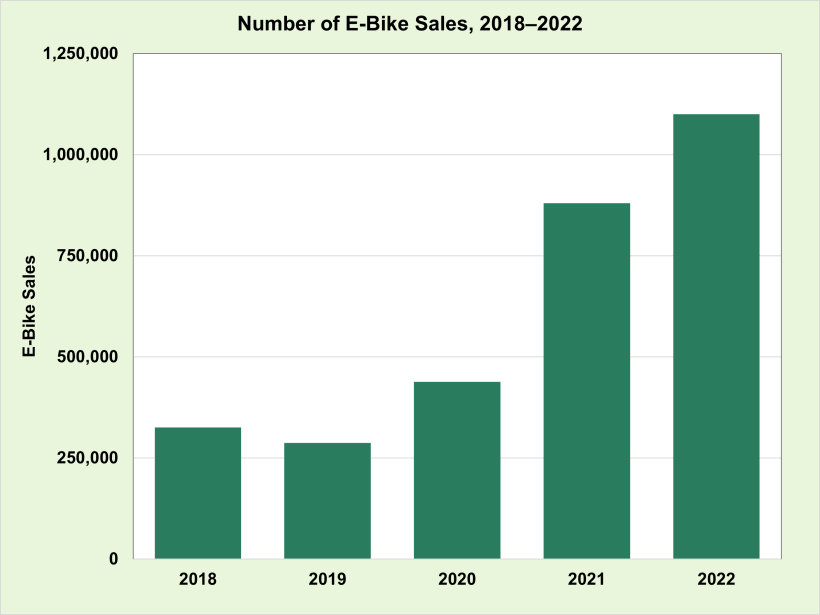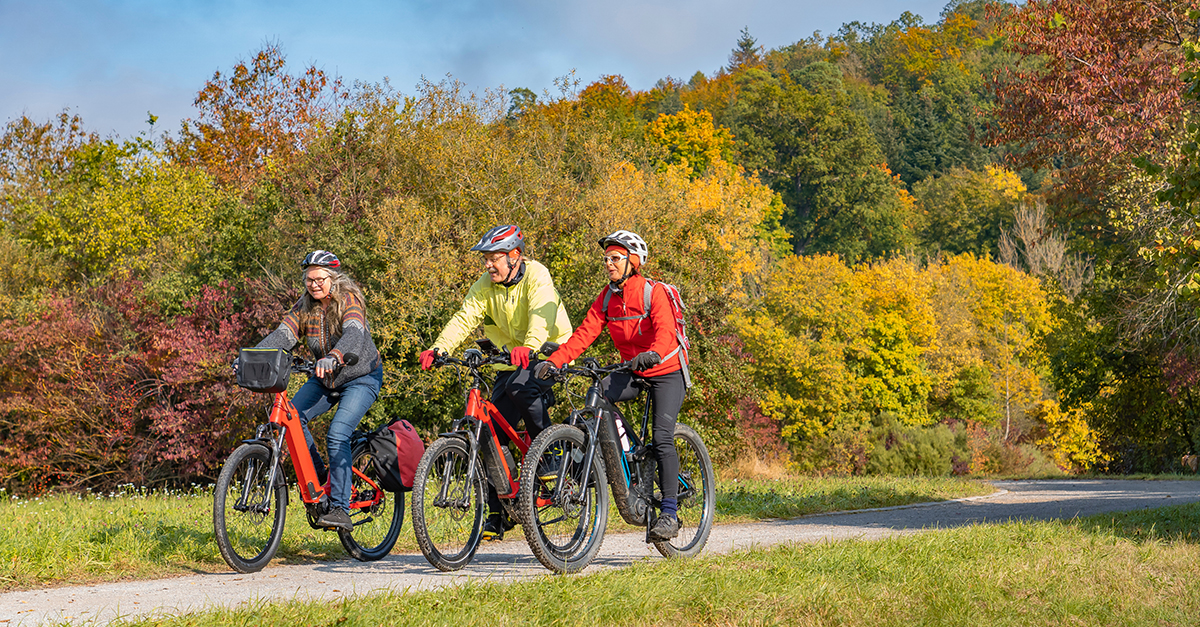Becky Alper, SRF Project Manager, and Sam Ricord, Ph.D., a Transportation Sustainability Engineer, of SRF’s Performance Management Group, share their insights about the recent rollout of Minnesota’s e-bike rebate.
Last week, Minnesota’s new e-bike rebate “sold out” in under 20 minutes. The 10,000 lucky Minnesotans who squeezed through the Department of Revenue portal are eligible to receive an incentive of up to $1,500 per e-bike purchase, up until the $2 million allocated by the Legislature in 2024 runs out. That means that if each recipient claims the full $1,500, the money will run out around person number 1,333, long before the demand dissipates.
But what if this program had the funding to meet demand? How would that impact Minnesota’s vehicle miles traveled (VMT) reduction goals?
Our calculations suggest that a $100 million annual e-bike rebate program has the potential to reduce almost 364 million VMT annually in Minnesota. This would account for 9 percent of Minnesota’s 2040 per capita VMT target.
Why E-Bikes?
E-bikes are appealing as a sweat-free solution for people who don’t currently bicycle. Sales of e-bikes hit 1.1 million in the United States in 2022, almost four times as many as were sold in 2019.

The existing literature has shown that e-bikes have the potential to help cities, counties, and states achieve their climate-related goals by switching short trips from driving to bicycling. By shifting modes, regardless of trip type, e-bikes open up opportunities for policymakers looking to reduce vehicle miles traveled and meet climate goals.
Success of E-Bike Rebate Programs
A similar e-bike rebate program implemented in Denver in 2022 demonstrated that people with e-bikes more frequently leave their cars at home. This is important because nationally approximately 60% of all vehicle trips are 6 miles or less, an easy e-bike distance.
Denver’s e-bike rebate program provides some important lessons for Minnesota and policymakers looking to implement similar incentive programs:
- 29% of Denver e-bike redeemers who completed the program survey indicated they were new to riding bikes.
- 71% of the same survey respondents reported using their gas vehicles less often since they purchased an e-bike.
Incentives create financial motivations for people to take a particular action, which is a common strategy in transportation demand management (TDM). The Association for Commuter Transportation defines TDM as “the use of strategies to inform and encourage people to maximize the efficiency of our transportation systems; leading to improved mobility, reduced congestion, and lower carbon emissions.” TDM incentives have traditionally trended on the smaller side – for example, entering people into a drawing for a $25 gift certificate, free bike lights, or coupons.
Our Research
The high demand for Minnesota’s 2024 e-bike rebate – a sophisticated TDM incentive – hints at its potential for VMT reduction. We recently used Replica, a source of big data, to understand Minnesota-specific travel behavior and forecast future VMT based on a series of different demand scenarios.
What we found was astounding. With a funding level of $100 million, approximately the cost of one freeway system interchange, this e-bike rebate program could reduce almost 364 million VMT annually or 63.8 VMT per capita in Minnesota.
With MnDOT’s goal to reduce VMT per capita to 9,195 by 2040, a program of this size could make a big difference. Based on our calculations and research, e-bikes are an important piece of the puzzle to achieving those reductions.
How can SRF help?
SRF’s team of transportation policy professionals, engineers, and data scientists will work with your agency or community to examine practice and policy related to new mobility modes, such as e-bikes. We are passionate about helping our clients expand transportation modes in their communities to ensure equity and encourage sustainable practices. With our breadth of experience across the region, we understand the nuances of funding and project processes and will help you make the most of emerging mobility opportunities and trends.
Becky Alper

763.452.4769
At SRF, Becky Alper focuses on multimodal policy and implementation projects with a passion for innovative strategies to prepare communities for the future. With more than 15 years of experience in the transportation field, she has a diverse planning and project management background spanning the public, private, and non-profit sectors. Becky understands the benefits, risks, difficulties, and joy that go into bicycling. She has focused on bicycling at a personal and professional level throughout her life and believes deeply in bicycling for both transportation and fun.
Before coming to SRF, she directed employer outreach and multimodal behavior change programs at Twin Cities transportation management organizations, building new programming for transportation options.

608.298.5417
Sam Ricord, Ph.D
Sam currently supports efforts at SRF to help our client agencies advance their sustainability and resilience goals, including the Minnesota Carbon Reduction Plan, Resilience Improvement Plan and implementing the vehicle miles traveled (VMT) reduction target.
Sam Ricord has five years of experience in building sustainable and equitable transportation systems in the United States. With an education in civil and traffic engineering, his work has focused on the confluence of transportation equity, technology, sustainability, and safety. Prior to his current role, Sam completed his doctoral degree from the University of Washington. During his studies he covered a wide variety of transportation-related topics, including investigating the intersection of transportation equity and technology, creating quantifiable methods for assessing equity, and addressing critical equity and safety topics in tribal communities.

